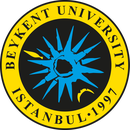
International Conference on Eurasian Economies
17-18 September 2013 – St. Petersburg, RUSSIA
Paper detail
Paper ID : 641
Status : Paper published
Language : Turkish
Topic : Finance and Financial Crises
Presenter: Asst. Prof. Dr. Poyraz Gürson
Session : 1C Finansal Krizler
EU Debt Crisis and Contagious Effect via Transmission Mechanisms: Possible Effects on Turkey
AB Borç Krizi ve Aktarım Mekanizmaları ile Yayılımı: Türkiye’ye Muhtemel Etkileri
- Mr. Mustafa Kemal Topcu (Ankara Chamber of Industry, Türkiye)
- Asst. Prof. Dr. Poyraz Gürson (Atılım University, Türkiye)
- Prof. Dr. Halil İbrahim Ülker (Atılım University, Türkiye)
- Asst. Prof. Dr. Turan Erman Erkan (Atılım University, Türkiye)
Abstract
The common features of the crises, which are resulted from global crisis rooted from the US and emerged in Euro Zone sequentially, are the rate of public debt and budget deficit of GNP far from reflecting Maastricht criteria. Beginning in Greece in 2009, it has been seen in Ireland, Italy, Portugal, and Spain in a recent time. Although money union is established, leaving financial policies to country’s own initiative resulted in unsolved problems. Seeking solutions with IMF led to some sustainability programs. However, expectations show that debts will not be overcome for a long period. Towards this end, it is possible for Turkey to be affected since European Union is her biggest trade partner. There is a general consensus on that trade and credit channel of transmission mechanisms would affect Turkey. Export preserves its level at 55%. Likewise, a large part of foreign debt of Turkey is to European banks. Furthermore, sustainment of the recent growth trend of Turkey requires new funds. In case European banks strengthen their capital by means of downsizing their balance sheets as a restructuring, Turkey may be in a challenging position.
JEL codes: F02, F42, F15
Topcu, Mustafa Kemal, Gürson, Poyraz, Ülker, Halil İbrahim , Erkan, Turan Erman (2013). "EU Debt Crisis and Contagious Effect via Transmission Mechanisms: Possible Effects on Turkey" in Proceedings of International Conference of Eurasian Economies 2013, pp.574-578, St. Petersburg, RUSSIA.
DOI: https://doi.org/10.36880/C04.00641


